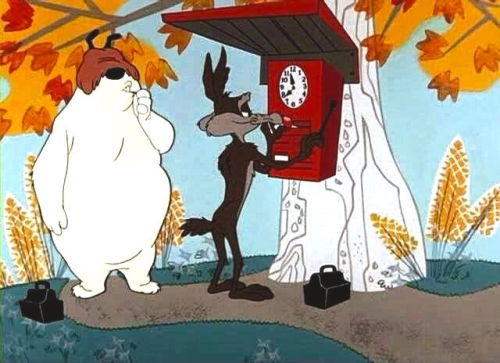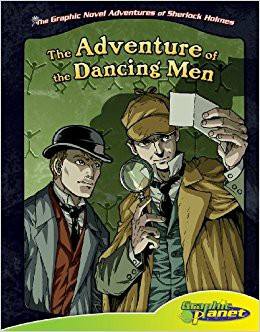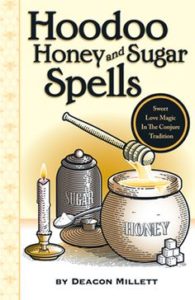Managing The Minefield On The Way To Successful Publication
Many Christian speculative fiction writers feel as if they have three strikes against them and are out of the game before they’ve even come up to bat when it comes to successful publication. The thing is, we’re not alone. Christians writing mystery or suspense sometimes feel the same way. Women writers of general market speculative fiction feel this way too. For example, one author had this to say:
Itâs tough, and as an ex-bookseller who once had to cram 800 Stephen King books into a tiny horror section I know space is limited, but the truth is there are TONS of brilliant women writing fantasy and we just donât see them on display in bookshops. (Jennifer Williams, quoted in “Jen Williams responds to opinions on Bookshopsâ perceived SFF Prejudice” at Fantasy Faction)
With the changes in the book industry, I think it’s helpful to discuss two particular elements of writing that lead to successful publication.
By “successful” I mean selling to people other than our friends and family. There is, of course, great success in completing a novel and in getting our friends and family to read it, let alone buy it. There’s great success in influencing one person to live life differently, and there is great success in putting words on a page with the express goal to bring God glory. So by defining “success” as I am, I am not ignoring these other ways of measuring accomplishment. Rather, I’m speaking to a particular purpose–moving books into the public arena so that readers are buying them.
Phase One involves the writing. Some writers will think this a no-brainer, but I’m speaking to my beginning-writer self, and to the many other writers out there who want to write a novel that speaks into our culture so they can change lives or influence people. These are everyday people who want to write, who have a story, who believe their story can make a difference.
Writing fiction is a craft–learn how to do it well. It takes work, starting with learning good technique. Many readers aren’t aware of this. They know story because they’ve been reading stories all their lives, so when they are inspired to tell their own story, they don’t first study how to write a novel, they simply start writing. That was me.
The fact is, there are fiction techniques that make novels better. Stories have structure, and some structure is more effective than others. Characters must be developed and worlds built and themes seamlessly and unobtrusively included. These techniques don’t come naturally. They must be learned.
 There are many ways to learn fiction techniques. One method is to attend writers’ conferences such as Realm Makers, “the preeminent symposium for people of faith who love to create science fiction and fantasy stories.” This year’s event will be held next week at Atlantis Casino Resort, Reno, Nevada.
There are many ways to learn fiction techniques. One method is to attend writers’ conferences such as Realm Makers, “the preeminent symposium for people of faith who love to create science fiction and fantasy stories.” This year’s event will be held next week at Atlantis Casino Resort, Reno, Nevada.
For those who don’t have the time or money to attend a conference, there are innumerable helpful writing instruction books. My favorites include Donald Maass’s Writing the Breakout Novel, Stein on Writing (Sol Stein), Description by Monica Wood, and Characters, Emotion, and Viewpoint by Nancy Kress. There are many, many others including my own ebooks, Power Elements of Story Structure and Power Elements of Character Development.
Some people may not have discretionary dollars to spend on writing instruction books. No worry. There are blogs devoted to writing instruction such as K. M. Weiland’s blog, agent Rachelle Gardner’s blog, and many more.
A fourth way to improve writing craft is to join a critique group, either in person or online. Getting feedback on your story can be eye-opening–not always fun or easy, but helpful, nonetheless. There are also contests such as the Spec Faith Challenges or Miss Snark’s First Victim which allow commenters to give a writer feedback.
Finally there are freelance editors who can give you a variety of services, from a paid critique to a full content and copy edit. Of course, some conferences also offer critiques, either for a moderate fee or as part of the conference tuition.
Besides learning and applying good fiction techniques, there’s a second phase to successful publication—promotion and marketing. I’ve seen some not-great fiction sell well because the author has some expertise in this second phase. On the other hand, I’ve seen some quality fiction get lost from the public’s view because the author did little promotion.
Before promotion, there are some key marketing-type things a writer who plans to self-publish should consider such as cover and interior design. For more information on self-publishing, you may wish to read “The Behind-the-Scenes Ingredients for Being a Bestselling Successful Self-Published Author” by Stacey Aaronson.
One of the best ways to promote a book is to speak. This strategy is especially effective for writers of middle grade or young adult books because they can arrange speaking events in schools, allowing them to talk directly to their audience. Some writers are natural speakers while others turn themselves into speakers by studying and practicing through an organization like Toastmasters.
Of course, most industry professionals say that the number one way to promote a book is through “buzz,” or talk about the book generated by readers. Social media offers a number of ways to generate buzz, but unfortunately, too much comes across like spam. Of course, no one has the magic formula, the sure-fired, can’t-miss way of getting attention.
Writing something controversial does often draw attention to a book. See, for example, The Shack. While Paul Young has written other books since that first blockbuster, none has received the public notice that it received. They simply haven’t generated the same level of controversy. Others that may owe their initial success to controversy surrounding the book are Harry Potter and the Sorcerer’s Stone, Fifty Shades of Gray, and The Da Vinci Code.
Of course, books don’t have to sell at the blockbuster level to be successful. In fact, few ever reach that rank. Still, they might receive more attention because they reach the finals in a contest or they are featured in a blog tour.
More recently collections of writers working together to support and promote each other’s work, such as New Authors Fellowship, has gained traction. Groups like Christian Indie Novelists, a Yahoo! group, offer support, services, and encouragement.
Of course, Spec Faith is a bit of a conglomeration–supporting writers, holding or sponsoring contests, promoting books. The truth is, a site like Spec Faith needs participation–reviewers offering their reviews, commenters interacting with the daily subject matter, readers voting for contest entries. We do what we do primarily because we want to see more Christian speculative novels become successful, and we count on our visitors to help us.
We’d like to hear from you. What do you think is the most important thing to make a book successful?
Minus some editing and updates, this post originally appeared here March, 2014.



































 And before you know it, at least three entirely different species of troll are clubbing at your virtual door and maybe your physical door. This person eats and even poses for friendly photos with tax collectors and sinners! He has been Associated with white supremacy, Sexualityism, and a divisive political figure. Outrageous. Itâs simply outrageous!
And before you know it, at least three entirely different species of troll are clubbing at your virtual door and maybe your physical door. This person eats and even poses for friendly photos with tax collectors and sinners! He has been Associated with white supremacy, Sexualityism, and a divisive political figure. Outrageous. Itâs simply outrageous!
 But in all other areas, things are fuzzier.
But in all other areas, things are fuzzier.

 paradise and even sees heaven. The poem is filled with scriptural allusions and theological discussion and is only slightly less religious than the Bible. It sounds like a modern Christian novel, maybe even a bit The Shack meets 90 Minutes in Heaven.
paradise and even sees heaven. The poem is filled with scriptural allusions and theological discussion and is only slightly less religious than the Bible. It sounds like a modern Christian novel, maybe even a bit The Shack meets 90 Minutes in Heaven. med and glorified; he must resign his pearl to God.
med and glorified; he must resign his pearl to God.
 Things have become wibbly-wobbly in the Whovian corner of the universe. Sunday,
Things have become wibbly-wobbly in the Whovian corner of the universe. Sunday, 

 2. With this development, the Whoverse now has no choice but to forge into new territory. Certainly a tradition of the show, but one that may backfire. After all, if it ainât broke, why fix it?
2. With this development, the Whoverse now has no choice but to forge into new territory. Certainly a tradition of the show, but one that may backfire. After all, if it ainât broke, why fix it?

 So far, I havenât found if the performers meant to portray the Trinityâs relationship of harmony. (If they only meant to portray something more human, such as members of the Church working together, itâs interesting that viewers compared this to the Trinity!)
So far, I havenât found if the performers meant to portray the Trinityâs relationship of harmony. (If they only meant to portray something more human, such as members of the Church working together, itâs interesting that viewers compared this to the Trinity!)



 of voodoo. Still, there is a definite mystical component of hoodoo that hearkens back to pagan rituals and pantheism. It may seem less “sinister” than voodoo but it grows from the same root.
of voodoo. Still, there is a definite mystical component of hoodoo that hearkens back to pagan rituals and pantheism. It may seem less “sinister” than voodoo but it grows from the same root.

 The Awards have returned this year, ready for another grand time of celebrating, talking about, and generally enjoying all the amazing things we love about fantasy characters. Co-creators DJ Edwardson and Jenelle Schmidt (along with our fantastic Silmarite group of bloggers) have been hard at work to make the Awards even better than last year.
The Awards have returned this year, ready for another grand time of celebrating, talking about, and generally enjoying all the amazing things we love about fantasy characters. Co-creators DJ Edwardson and Jenelle Schmidt (along with our fantastic Silmarite group of bloggers) have been hard at work to make the Awards even better than last year.
 Hereâs a quick reference list of the awards:
Hereâs a quick reference list of the awards:




